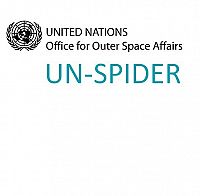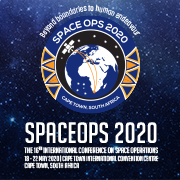›UN-SPIDER Bonn International Conference "Space-based Solutions for Disaster Management in Africa
UN-SPIDER Bonn International Conference "Space-based Solutions for Disaster Management in Africa: Challenges, Applications, Partnerships"
Natural and man-made disasters cause tremendous damage to societies around the world. They lead to loss of lives and property, displace people from their homes and destroy livelihoods, and disrupt sustainable development efforts worldwide. Developing countries are particularly susceptible to the impact of disasters as societies are more vulnerable and exposed, and less resilient to recover when disasters strike.
Convinced that space technologies can play a vital role in supporting disaster management, the United Nations General Assembly (UNGA) established the United Nations Platform for Space-based Information for Disaster Management and Emergency Response (UN-SPIDER) in 2006 as a programme to be implemented by the United Nations Office for Outer Space Affairs (UNOOSA). The General Assembly mandated UN-SPIDER to provide universal access to all countries and all relevant international and regional organizations to all types of space-based information and services relevant to disaster management to support the full disaster management cycle.
In recent years, the quality of satellite sensors, access to and use of satellite imagery and Earth observation services has significantly improved, with more and more space agencies embracing open data policies that facilitate access to archived and up-to-date imagery. Such remotely-sensed data can be combined with in situ information from a variety of sensors and with other data sources such as crowdsourced geotagged images to generate relevant information. Through Big Data approaches, diverse data sources can be used synergistically to create insights that would not be possible through the exploitation of a single source. The increasing presence of Artificial Intelligence (AI) techniques in remote sensing, such as deep learning, helps mine the massive amounts of big space data more efficiently, for instance to quickly determine whether a road is still passable or not following a disaster.
Taking note of these advances in space technologies and other technological advances, the African Union outlined in its 2017 African Space Policy that space represents a unique opportunity for cooperation in using and sharing enabling infrastructure and data towards the proactive management of responses to natural hazards and disasters, amongst other fields. In this way, the African Union aims to promote the use of space applications for improving weather forecasts and to develop a range of early warning systems, as Africa is subject to various extreme weather, climate, ecosystem and geological events.
Strengthening technical skills and setting up institutional and inter-institutional structures is important to ensure that the benefits of space-based information reach civil protection agencies and other actors involved in disaster management activities. Partnerships can facilitate access to data, for instance through emergency mechanisms such as the International Charter Space and Major Disasters. Recently, the European Union and the Government of Germany identified international cooperation with Africa as one of the priorities as highlighted in the Marshall Plan with Africa of the Federal Ministry for Economic Cooperation and Development (BMZ), the Africa Strategy 2014-2018 of the Federal Ministry of Education and Research and the G20 Compact with Africa.
This International Conference will take up the issues raised above and continue identifying challenges, highlight solutions and encourage partnerships for using space technologies for disaster management in Africa.
Objectives and expected outcomes
The International Conference aims to contribute to an increased use of big space data approaches and satellite-based application in African countries to respond to challenges posed by natural hazards. More specifically, the event aims to:
Showcase recent advances and identify challenges to the use of space-based information, big data approaches and artificial intelligence techniques such as machine learning in disaster management in Africa.
Present and provide a hands-on experience of space-based applications through tutorials on technical solutions ranging from standalone desktop packages to cloud computing environments that facilitate the access to and use of space-based data and information products for disaster management.
Build on the outcomes of UNOOSA international conferences and symposia to identify capacity-building needs and opportunities regarding full use of the increasing amount of space-based information and new techniques to access, combine, process, analyze and present the data.
Provide a forum to discuss partnerships to facilitate access to data and applications tailored to the needs of disaster management stakeholders in Africa.
Track this event on your Apple calendar














 Germany
Germany